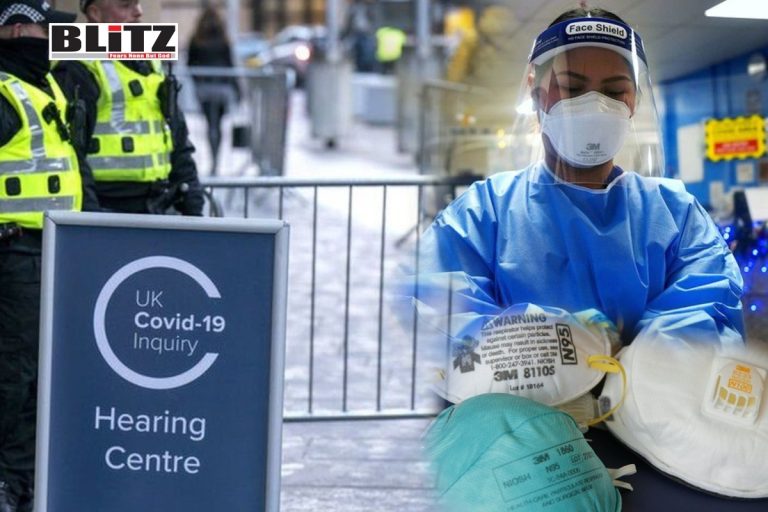
A comprehensive new report by Transparency International UK (TIUK) has exposed significant failures and corruption risks in the British government’s COVID-19 procurement processes. According to the report, around a third of all public contracts signed during the pandemic bypassed standard procurement safeguards, with billions of pounds channeled to entities with political connections to the Conservative Party. This report sheds light on the staggering waste and mismanagement that characterized the UK’s response to the pandemic.
The COVID-19 pandemic prompted an urgent response from governments worldwide, and the UK was no exception. In an unprecedented public health crisis, authorities prioritized speed over rigor, leading to a significant relaxation of procurement protocols. The TIUK report reveals that this hasty approach resulted in substantial inefficiencies and exposed the procurement process to corruption.
According to the report, 135 high-risk COVID-19 contracts were identified, accounting for nearly one-third of the total spending on pandemic response. These contracts included 28 deals worth £4.1 billion (approximately US$5.4 billion) awarded to entities with direct political connections to the Conservative Party. This finding raises serious questions about the integrity of the procurement process and the extent to which political favoritism influenced contract awards.
One of the most contentious aspects of the report is its focus on the VIP lane-a special route through which firms recommended by politicians and officials were fast-tracked for contracts. The VIP lane was intended to streamline the procurement process, but it quickly became a symbol of cronyism and favoritism. The report highlights that the VIP lane accounted for £1.7 billion (about US$2.2 billion) of high-risk contracts.
Suppliers that benefited from the VIP lane were found to have inflated their prices by an average of 80 percent compared to supplies procured through other channels. This overpricing led to a significant financial burden on taxpayers and raised concerns about the value for money of these contracts. Additionally, VIP lane firms supplied £1 billion (approximately US$1.3 billion) worth of personal protective equipment (PPE) that was subsequently found to be unfit for purpose, as reported by NGO Spotlight on Corruption.
The report underscores that the use of the VIP lane was not only a financial waste but also a breach of fairness and transparency. In 2022, English courts deemed the preferential treatment afforded to VIP lane firms as unlawful, highlighting the legal and ethical failings of the procurement process during the pandemic.
Transparency International UK’s report criticizes the British government’s reliance on non-competitive procurement, which accounted for two-thirds of the total expenditure on COVID-19 contracts. By bypassing competitive bidding processes, the government effectively removed market mechanisms that would have otherwise acted as a safeguard against cronyism and corruption.
The lack of competitive bidding meant that many contracts were awarded without proper scrutiny or consideration of alternative suppliers. This approach not only undermined the principles of fairness and transparency but also led to substantial financial waste. The report highlights that, while EU member states reverted to competitive bidding within a year of the pandemic’s onset, the UK continued to allocate funds through direct awards. This persistence in non-competitive procurement practices further exacerbated the risks of mismanagement and corruption.
In light of these revelations, Transparency International UK has called for a thorough investigation into the high-risk contracts identified in the report. TIUK emphasizes the need for significant reforms in government procurement processes to restore public trust and ensure that future emergency responses are conducted with greater transparency and accountability.
The report’s findings point to a critical need for the UK government to reevaluate its procurement practices and implement measures to prevent similar failures in the future. Improved oversight mechanisms, stricter adherence to procurement protocols, and greater transparency are essential to rebuilding public confidence in government institutions and their ability to manage public funds effectively.
The Transparency International UK report provides a damning assessment of the British government’s COVID-19 procurement processes, exposing widespread failures and corruption risks. The bypassing of standard safeguards, the misuse of the VIP lane, and the reliance on non-competitive procurement have all contributed to a troubling legacy of waste and mismanagement. As the UK grapples with the fallout from these revelations, it is imperative that authorities take decisive action to address these issues and implement reforms to prevent similar occurrences in the future. The call for improved transparency and accountability is a crucial step in restoring public trust and ensuring that the lessons learned from this crisis lead to more effective and equitable governance in the years to come.